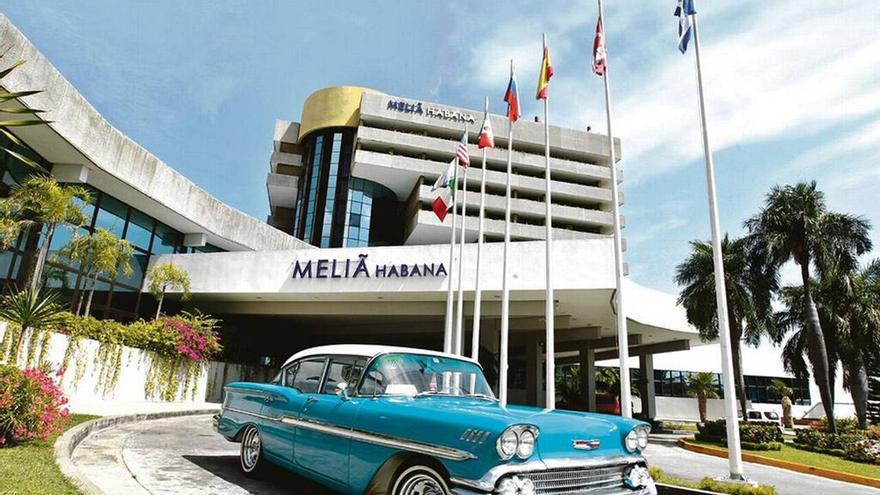
![]() 14ymedio, Madrid, March 25, 2019 — Iberostar and Meliá, the two big Spanish hotel companies with major investments in Cuba, are preparing themselves in face of possible claims after the Trump administration partially activated Title III of the Helms-Burton Law. According to the Spanish economic newspaper Cinco Días, the hotel companies had already contracted the services of several lawyers’ offices to face eventual legal problems.
14ymedio, Madrid, March 25, 2019 — Iberostar and Meliá, the two big Spanish hotel companies with major investments in Cuba, are preparing themselves in face of possible claims after the Trump administration partially activated Title III of the Helms-Burton Law. According to the Spanish economic newspaper Cinco Días, the hotel companies had already contracted the services of several lawyers’ offices to face eventual legal problems.
Title III of the Helms-Burton Law, approved by the United States in 1996, provides for the possibility of bringing claims in front of American courts which could result in the confiscation of properties in the United States owned by businesses with operations in Cuba.
In the last 20 years Washington has suspended the application of this title of the Law, but on March 17 the government of Donald Trump made the decision to apply it in a partial manner.
For the time being, people and companies are able to sue companies sanctioned by Washington that operate in Cuba and that are included on a “black list,” which principally affects those linked to the Revolutionary Armed Forces (FAR). In this case are found some hotels of Gaviota, which manages Meliá.
The main fear is that when April 17 comes, Trump will not definitively renew the suspension and allow the attempts to recover confiscated goods.
According to Hermenegildo Altozano, associate at the law office of Bird & Bird consulted by Cinco Días and an expert in Cuban affairs, Trump intends to use the pressure of economic measures to force political changes.
Marco Rubio is leading that strategy, explains the lawyer. “He is a very important, influential senator, who wants to make a political career and is using his power to try to convince Cubans in exile and in the US to make claims and reactivate the mechanism of coercion,” business sources close to Trump pointed out to the newspaper.
Ignacio Aparicio, associate of Andersen Tax & Legal and director of the Cuban Desk, also consulted by Cinco Días, says that there are around 6,000 certified claims before the Commission of Liquidation of Foreign Claims run by the Government, in the amount of approximately $9 billion, although the figure is conservative.
According to Cinco Días, experts on this matter rule out a priori that it comes to expropriating, but they consider other economic measures possible. “I see it as highly improbable that one of the certified claimants is able to begin the claims process, but if it did this it could generate a deterioration of the credit qualification of the companies and could provoke a cut of lines of credit to the Spanish companies,” said Altozano.
Another office consulted, which did not want to identify itself, doesn’t dismiss the resources so much. “The pulse could intensify if it passed from threats to reality and the American government could also opt to seize cash flows or assets of the company on American soil,” they declare.
Meliá has 32 hotels operating on the archipelago, 7 in construction, and some 15,000 rooms, while Iberostar has 21 hotels and 6,300 rooms. The latter has an important expansion plan approved to reach 12,000 rooms in 2020.
Last week the Spanish Chamber of Commerce called on the European Union for a common stance to fight in this framework. The body asked for actions aimed at avoiding the application of the Helms-Burton Law in an extraterritorial manner to European and especially Spanish citizens and countries.
Among the actions that could be carried out, it points out the application of Article 6 of the Blocking Statute of the European Union, which permits member States affected by the Helms-Burton Law to initiate legal actions on European Union territory against American companies demanding sanctions on European countries with interests in Cuba.
Translated by: Sheilagh Carey
_________________
The 14ymedio team is committed to serious journalism that reflects the reality of deep Cuba. Thank you for joining us on this long road. We invite you to continue supporting us, but this time by becoming a member of 14ymedio. Together we can continue to transform journalism in Cuba.
